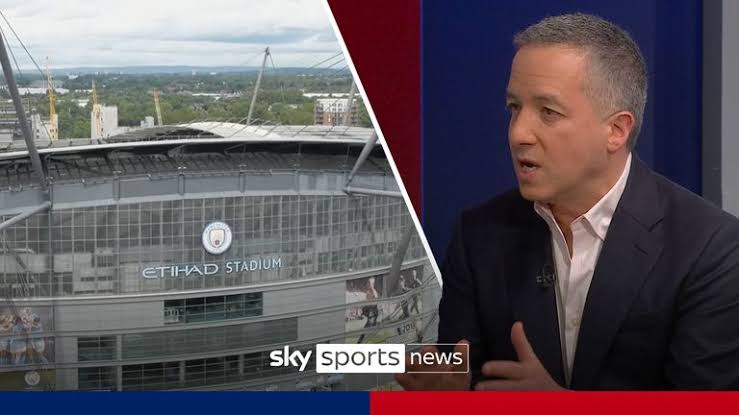Man City ‘set to learn verdict’ on case against Premier League sponsorship rules as source reveals ‘expected outcome’

The Associated Party Transaction rules represent a cornerstone of the Premier League’s efforts to maintain competitive balance and financial integrity within English football. These regulations were introduced as part of a broader suite of measures designed to prevent clubs from circumventing financial fair play rules through artificially inflated commercial arrangements with entities connected to their ownership structures.
The APT rules specifically target transactions between football clubs and companies or organizations that have significant connections to the club’s owners, directors, or other key stakeholders. The fundamental principle underlying these regulations is that all such transactions must reflect genuine market value – the amount that would be paid in a normal commercial transaction between unrelated parties operating at arm’s length.
Under the current framework, any proposed transaction between a club and an associated party must undergo rigorous independent assessment to determine whether it represents fair market value. This process involves detailed financial analysis, market comparisons, and expert evaluation to ensure that the transaction terms are consistent with what would be achieved in a competitive marketplace.
The rationale for these rules stems from concerns that wealthy owners might use their other business interests to funnel money into their football clubs through overvalued sponsorship deals, consultancy arrangements, or other commercial agreements. Without proper oversight, such arrangements could allow clubs to bypass spending limits and gain unfair competitive advantages through financial engineering rather than legitimate commercial success.
Manchester City’s Legal Challenge
Manchester City’s decision to challenge the APT rules through legal action represents a significant escalation in their ongoing disputes with Premier League governance. The club’s legal team has characterized the current APT regulations as “unlawful,” suggesting fundamental flaws in either the rules themselves or their implementation and enforcement.
The specific grounds for City’s challenge remain partially confidential due to the ongoing nature of the legal proceedings, but the club’s position appears to center on several key arguments. First, they may be contesting the legal authority of the Premier League to implement and enforce such regulations, particularly in relation to their scope and the penalties associated with non-compliance.
Second, City’s legal challenge likely addresses the methodology and fairness of the assessment process itself. The club may argue that the current system for determining fair market value is flawed, inconsistent, or biased in its application. This could include challenges to the expertise of those conducting assessments, the criteria used to evaluate transactions, or the transparency of the decision-making process.
Third, there may be constitutional or procedural arguments about how the APT rules were developed and implemented. If the rules were introduced or modified without proper consultation, adequate notice, or appropriate governance procedures, this could provide grounds for legal challenge.
The Hearing Process and Early Indications
According to reports, a comprehensive two-week hearing into Manchester City’s APT challenge has already been conducted. The hearing process represents a crucial stage in the legal proceedings, providing both sides with the opportunity to present their arguments, evidence, and expert testimony before an independent panel.
The hearing reportedly attracted significant attention from across the Premier League, with representatives from multiple clubs participating in the proceedings. This broad participation reflects the potential implications of the case for the entire league structure. Some clubs provided evidence supporting Manchester City’s position, while others aligned themselves with the Premier League’s defense of the current regulations.
The diversity of club positions on this issue highlights the complex dynamics within the Premier League. Clubs with wealthy owners or significant commercial partnerships may share City’s concerns about the restrictive nature of APT rules, while others may view these regulations as essential protections against financial domination by the wealthiest clubs.
Early indications suggest that the hearing may have proceeded favorably for Manchester City’s legal team. Reports indicate that City’s representatives are optimistic about achieving “some form of victory” in the case, though the extent and nature of any potential success remains unclear. This optimism could reflect confidence in their legal arguments, positive responses from the hearing panel, or weaknesses identified in the Premier League’s defense of the current rules.
Potential Outcomes and Implications
The outcome of Manchester City’s APT challenge could take several forms, each with different implications for the club and the broader football landscape. A complete victory for City would likely result in the current APT rules being declared unlawful and potentially unenforceable. This would represent a significant blow to the Premier League’s regulatory framework and could necessitate fundamental changes to how associated party transactions are monitored and controlled.
A partial victory might involve modifications to the current rules or their implementation, addressing specific concerns raised by City while maintaining the overall regulatory framework. This could include changes to the assessment methodology, increased transparency in decision-making, or revised criteria for determining fair market value.
Even if City’s challenge is unsuccessful, the legal proceedings may still have important implications. The hearing process will likely generate detailed examination of the APT rules and their application, potentially identifying areas for improvement or clarification. Additionally, the precedent set by this case could influence future disputes and the development of financial regulations in football.
The 115 Charges: A Comprehensive Overview
Historical Context and Timeline
The 115 charges against Manchester City represent the culmination of a lengthy investigation into the club’s financial practices spanning nearly a decade. These charges emerge from a period of unprecedented success for City, coinciding with substantial investment from their ownership group and dramatic improvements in on-field performance.
The investigation’s origins can be traced to concerns raised about City’s rapid financial growth and the sources of revenue supporting their enhanced spending power. The Premier League’s inquiries were likely prompted by a combination of factors, including leaked documents, competitor complaints, and routine financial monitoring that identified potential irregularities.
The charges cover a significant period in City’s modern history, from the 2009/10 season through to 2017/18 for most allegations, with some charges extending into 2023. This timeframe encompasses City’s transformation from a mid-table club to one of the dominant forces in English and European football, a period characterized by substantial investment in players, infrastructure, and commercial operations.
Detailed Analysis of the Charges
Financial Information Accuracy (54 Charges)
The largest category of charges against Manchester City relates to alleged failures to provide accurate and up-to-date financial information to the Premier League. These 54 charges span the period from 2009/10 to 2017/18, suggesting systematic concerns about the reliability and completeness of City’s financial reporting.
These charges likely encompass various aspects of financial disclosure, including revenue recognition, expense reporting, asset valuation, and compliance with accounting standards. The allegations may involve concerns about how City recorded and reported commercial income, particularly from sponsorship deals and other commercial partnerships that could be subject to APT rules.
The significance of these charges extends beyond mere administrative failures. Accurate financial reporting forms the foundation of the Premier League’s regulatory framework, enabling effective monitoring of financial fair play compliance and ensuring competitive balance. If proven, these charges could indicate deliberate attempts to mislead regulators or systematic failures in financial governance.
Cooperation with Investigations (35 Charges)
The 35 charges related to failure to cooperate with Premier League investigations represent a more recent development, covering the period from December 2018 to February 2023. These charges suggest ongoing tensions between City and the Premier League regarding the club’s response to regulatory inquiries.
These allegations could involve various forms of non-cooperation, including failure to provide requested documents, delayed responses to information requests, refusal to make personnel available for interviews, or provision of incomplete or misleading information during investigations.
The extended timeframe of these charges indicates persistent difficulties in the relationship between City and the Premier League’s regulatory apparatus. This pattern of alleged non-cooperation may have complicated and prolonged the investigation process, potentially contributing to the overall complexity of the case.
Player and Manager Compensation (14 Charges)
The 14 charges related to player and manager compensation reporting cover the same period as the financial information charges (2009/10 to 2017/18). These allegations suggest concerns about how City recorded and reported payments to playing and coaching staff.
These charges may involve various compensation-related issues, including off-the-books payments, undisclosed bonuses, image rights arrangements, or other forms of remuneration that were not properly reflected in official financial reports. The complexity of modern football compensation packages, which can include basic salaries, performance bonuses, image rights, and various other benefits, creates numerous opportunities for reporting discrepancies.
Profit and Sustainability Regulations (7 Charges)
The seven charges related to profit and sustainability regulations focus on a more recent period, from 2015/16 to 2017/18. These charges directly address compliance with the Premier League’s financial fair play rules, which are designed to prevent clubs from spending beyond their means and accumulating unsustainable debt levels.
These allegations may involve exceeding permitted losses, failing to meet break-even requirements, or other violations of the financial sustainability framework. The relatively smaller number of charges in this category compared to the financial reporting allegations may reflect the more recent implementation of comprehensive profit and sustainability rules.
UEFA Regulations Compliance (5 Charges)
The five charges related to UEFA regulations compliance acknowledge the international dimension of City’s alleged regulatory violations. These charges address compliance with UEFA’s Club Licensing and Financial Fair Play regulations, which operate alongside Premier League rules to govern club finances in European competition.
These allegations may relate to City’s participation in European competitions during the relevant period and could involve similar issues to those addressed in the Premier League charges. The interconnected nature of domestic and international football regulations means that violations in one jurisdiction can have implications for participation in competitions governed by other bodies.
The Discrepancy in Total Charges
Recent reports suggest confusion regarding the total number of charges against Manchester City, with some sources indicating 130 charges rather than the widely reported 115. This discrepancy appears to stem from uncertainty about whether certain rules applied to particular seasons and how multiple violations of the same rule across different time periods should be counted.
The confusion over the exact number of charges reflects the complexity of modern football regulation and the challenges of applying evolving rules across multiple seasons. It also highlights the technical nature of the allegations and the importance of precise legal and regulatory interpretation in determining the scope of the charges.
Interconnections Between the Cases
Strategic Considerations
The timing and nature of Manchester City’s APT challenge may be strategically connected to their defense against the 115 charges. Success in the APT case could potentially undermine some of the charges related to financial reporting and associated party transactions, creating legal precedents that might benefit City’s position in the main disciplinary proceedings.
The APT challenge also serves to highlight potential weaknesses in the Premier League’s regulatory framework, which could be relevant to City’s broader defense strategy. By demonstrating that current rules are flawed or unlawfully implemented, City may be able to argue that they should not be held responsible for violations of invalid regulations.
Legal and Regulatory Framework
Both cases raise fundamental questions about the legal authority of the Premier League to implement and enforce financial regulations. The outcome of the APT challenge could have significant implications for the regulatory landscape in which the 115 charges are considered, potentially affecting both the applicable rules and the standards of evidence required for prosecution.
The interconnected nature of these cases also highlights the complex relationship between domestic and international football governance. Changes to Premier League regulations resulting from the APT challenge could have implications for UEFA rules and other international frameworks governing club finances.
Potential Outcomes and Implications
The resolution of both cases will likely have far-reaching implications for Manchester City, the Premier League, and the broader football industry. A favorable outcome for City in the APT case could strengthen their position in defending against the 115 charges, while success in both cases could fundamentally alter the regulatory landscape for club finances.
Conversely, adverse outcomes could result in significant penalties for City, including potential points deductions, transfer restrictions, or even exclusion from competitions. The severity of any penalties would likely reflect the seriousness of proven violations and their impact on competitive balance.
Conclusion
Manchester City’s legal battles represent a defining moment in the evolution of football governance and financial regulation. The outcome of these proceedings will establish important precedents for the balance between club autonomy and regulatory oversight, the enforcement of financial fair play rules, and the future development of football’s regulatory framework.
The complexity and significance of these cases extend far beyond their immediate impact on Manchester City, potentially reshaping the entire landscape of professional football governance. As the legal proceedings continue, all stakeholders in the football industry will be watching closely to understand the implications for the future of the sport.
The resolution of these cases will likely influence how football’s governing bodies approach financial regulation, how clubs structure their operations to comply with evolving rules, and how the balance between competitive fairness and commercial freedom is maintained in the modern game. Regardless of the outcomes, these proceedings will undoubtedly leave a lasting mark on the history of football governance and regulation.















